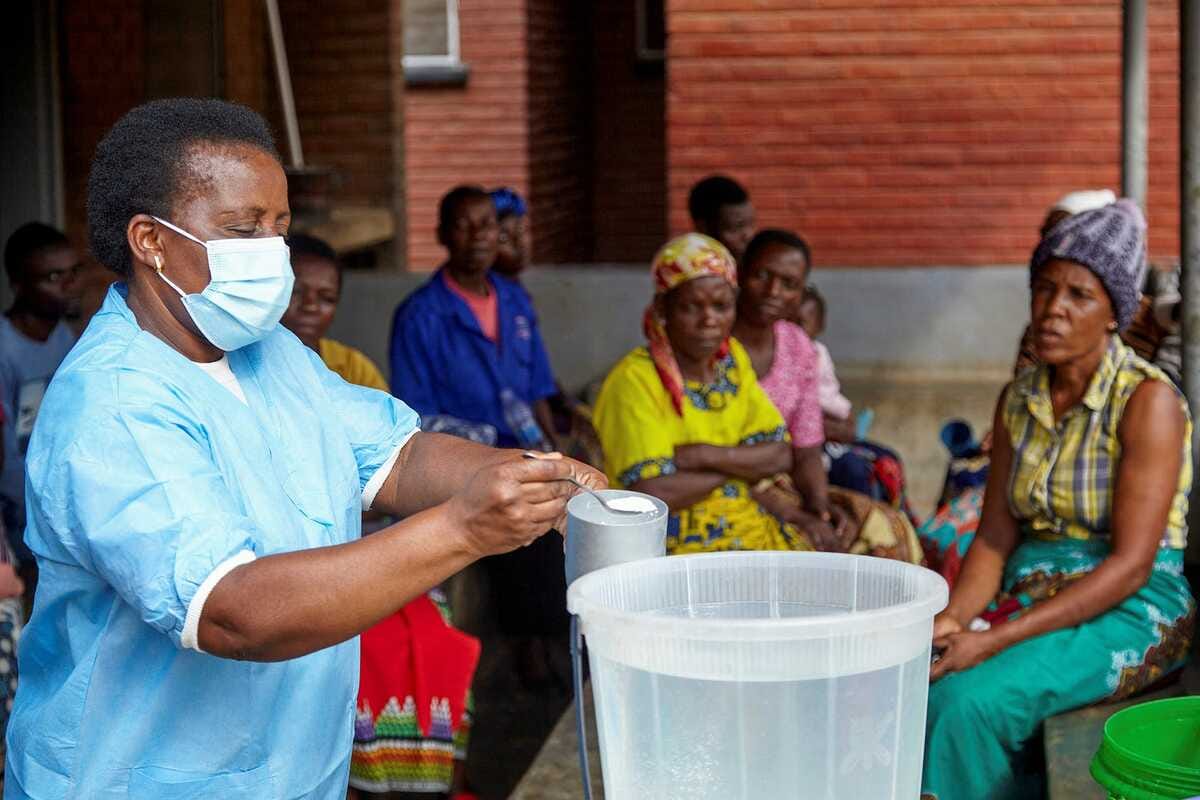
Malawi: The Presidential Taskforce on Coronavirus and Cholera has announced the suspension of the opening of primary and secondary schools in Blantyre and Lilongwe districts due to the ongoing cholera outbreak, according to the Covid-19 Secretariat's Principal Communications Officer, Grace Kapatuka.
While schools in other parts of the country are set to open on Tuesday, January 3, 2023, the taskforce has said that the opening dates for schools in Blantyre and Lilongwe will be announced at a later time.
But the decision to close schools in Malawi due to a cholera outbreak has sparked controversy and elicited diverse reactions from community members.
Some have expressed frustration with the decision and the impact on exams and the school calendar, while others believe that the closure is necessary to address sanitation issues and prevent the spread of disease.
Community members have shared their thoughts and opinions on the matter on social media and other platforms.
Here are some responses on the Times 360 Malawi Facebook page.
Lawrence Lanjeni expresses his frustration with the decision to close schools due to a cholera outbreak. He points out that some students have already received the cholera vaccine and that all students will be taking the same national exams.
Lawrence notes that the school calendar was already disrupted due to the COVID-19 pandemic and wonders why preventive measures were not put in place before schools reopened.
He suggests that schools should be disinfected, similar to how the Limbe Market was closed and disinfected for a day.
Lawrence notes that cholera has been present during the dry season and believes that schools should be reopened with appropriate hygienic measures in place, similar to how measures were implemented to address the ongoing COVID-19 pandemic.
Majidu Simeon Phiri suggests that if schools must be closed due to a cholera outbreak, the closure should be implemented nationwide and for a short period of time.
He believes that this would allow authorities to address sanitation issues and ensure that all students are treated fairly.
Majidu expresses concern about the impact of school closures on exams and notes that it is unclear how students in affected cities will be impacted.
He expresses frustration with the situation and mentions his concern for the country of Malawi.
Justin Kapindula wonders if other schools are not at risk of a cholera outbreak. He notes that many children from cities with a cholera outbreak attend schools in other districts in Malawi, and he is concerned that they may bring the cholera virus with them and infect other students.
Justin expresses concern about the potential spread of the cholera virus to other schools and the potential impact on students.
On the other hand, Lourine Mtewa believes that closing schools due to a cholera outbreak is a necessary step to address sanitation issues in government schools. She suggests that this situation should be used as an opportunity to assess the sanitation practices in schools and identify any areas that need improvement.
Lourine emphasizes the importance of addressing sanitation in schools in order to prevent the spread of disease.
Lillian Moyo believes that both government and private schools should be closed due to the cholera outbreak in order to ensure that there is harmony in the school calendar. She notes that the recent achievement of harmonization in school terms could be compromised if only some schools are closed.
Lillian emphasizes the importance of ensuring that all schools are treated equally in this situation.
Tandra Omar suggests that nurses working in areas with high rates of cholera should be assigned to go to schools and nearby workplaces to administer the cholera vaccine.
She believes that increasing education about vaccines would help protect more people, as many people are hesitant to get vaccinated.
Tandra also believes that people need to be taught about good hygiene practices, such as hand washing and boiling or chlorinating drinking water. She believes that the health department needs to do more to address these issues.